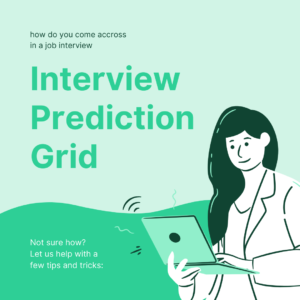Do you have any blind spots? Interview Question.
The ‘blindspot’ interveiw question is just another way of asking if you have any weaknesses.
When asked this interview question don’t actual give them a list of weaknesses. Instead, focus on how you identify and develop any areas of development.
During the interview answer, stay positive and, with confidence, explain that you proactively look for blind spots as you are a lifelong learner.
Interview Tutorial Video – do you have any blind spots?
Interview Question Do you have any blind spots?
Explanation of the Question:
If you know about blind spots, then they are not blind. By being aware of areas of development you can take actions to help advance your career and industry knowledge.
Employers use questions like this to see if you will tell them any weaknesses – let employers work out for themselves any weaknesses. When preparing an answer relating to this subject, frame the reply so the focus is on identifying blindspots and professional development.
Employers will phrase ‘blindspots’ instead of weaknesses when they are asking about sector knowledge levels – IE blindspots are missing knowledge or experience.
Example Interview Answer
“Throughout my professional career, I actively look for areas of development. An example of this was when I started my last job role. I have worked in the sector for a number of years and thought myself highly specialised. In the new role, though, they specialised in a rare niche that I had limited knowledge of.
By recognising a lack of expertise I immediately took action and enrolled in a course as well as asking a senior practitioner to be my mentor. This allowed me to quickly build up my knowledge base. Whenever I indientify any type of weakness I always take action to gain the required intelligence.”



